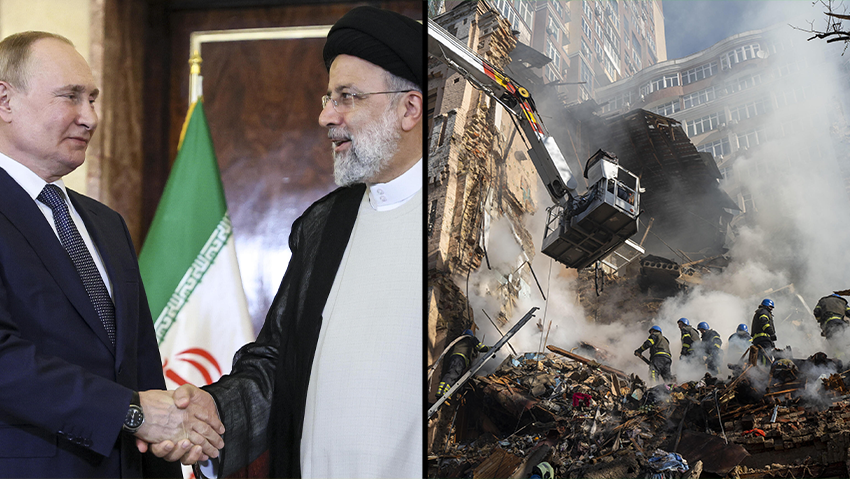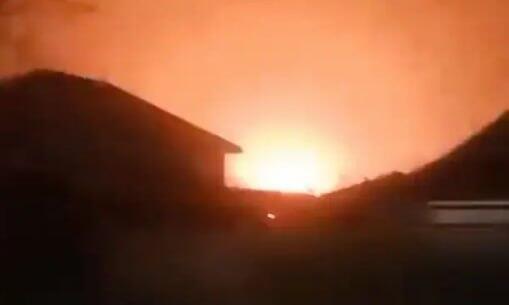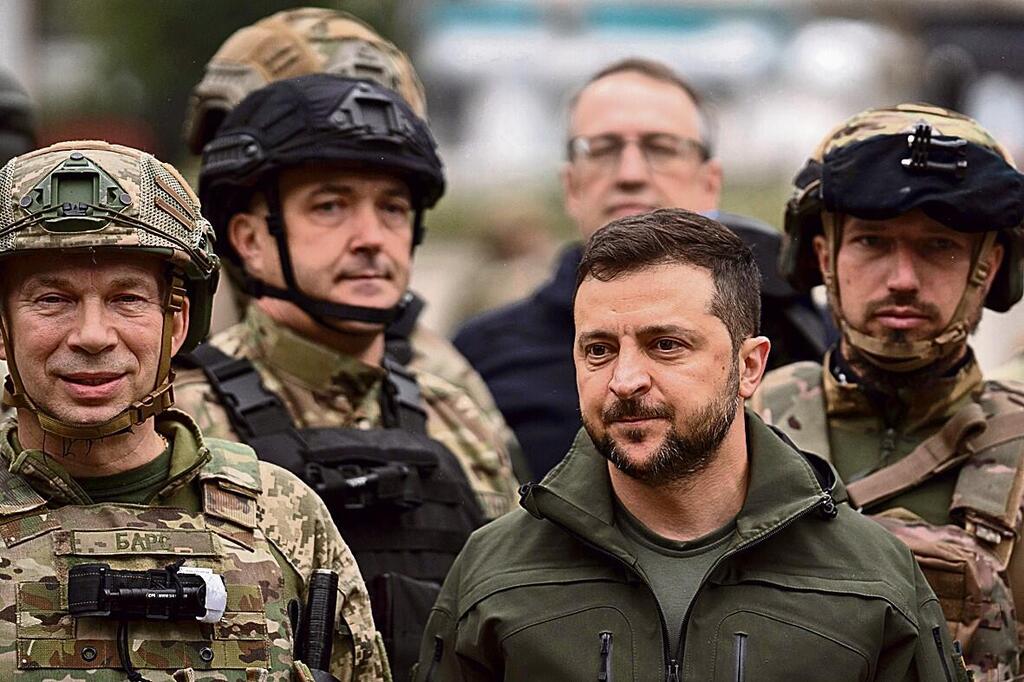Getting your Trinity Audio player ready...
Russia has been receiving large quantities of artillery munitions from Iran in recent months in order to replenish its dwindling stockpiles as Moscow's campaign in Ukraine conitnues, the Wall Street Journal reported on Monday.
Officials in the Middle East said that over the past six months, Russian cargo ships have transported more than 300,000 artillery shells and one million rounds of ammunition from Iran to Russia through the Caspian Sea.
Tehran has been providing military aid to Russia during the conflict, some of which has come in the form of suicide drones.
The Kremlin announced Monday that it thwarted a Ukrainian attack on a naval base in Sevastopol, located in the Crimean Peninsula. Three unmanned boats attempting to attack the Russian naval base were destroyed, according to the Defense Ministry.
The city's governor previously reported that two drones attempting to attack the port were intercepted, and one was destroyed while the other detonated harmlessly.
Also on Monday Russia reported the discovery of an "unmanned aerial vehicle (UAV) that self-destructed" near Moscow.
According to Russian media, the UAV carried 17 kg of explosives that went undetonated. Russia claims that the UAV crashed after running out of fuel or colliding with a tree in the nearby forest.
Analysts predict that Ukraine will mount a counterattack this spring to regain its occupied territories. The counteroffensive will target southern regions Zaporizhzhia and Kherson, two of four areas annexed by Russia during the war.
Donetsk and Luhansk in eastern Ukraine, comprising the Donbas region, are the other two annexed areas.
The driving force behind Russia's efforts to seize the city by force are the mercenaries of the Wagner Group - the private military company led by Yevgeny Prigozhin, a close associate of Vladimir Putin.
Prigozhin has been known to harshly criticize the Russian military's conduct in Ukraine, and his remarks have caused some discomfort among the inner circle of Kremlin decision-makers.
On Sunday, in response to reports that two Ukrainian soldiers killed a captured Russian prisoner of war, Prigozhin called on his mercenaries to kill Ukrainian soldiers in retaliation - rather than taking them prisoner.
Over the weekend, Prigozhin made a revelation that shook things up - that the son of Kremlin spokesperson Dmitry Peskov is among the Wagner Group fighters in Ukraine.
According to Prigozhin, Nikolai Peskov served as a rookie for three weeks before being deployed to the Luhansk region, where he served as a sharpshooter during the war.




